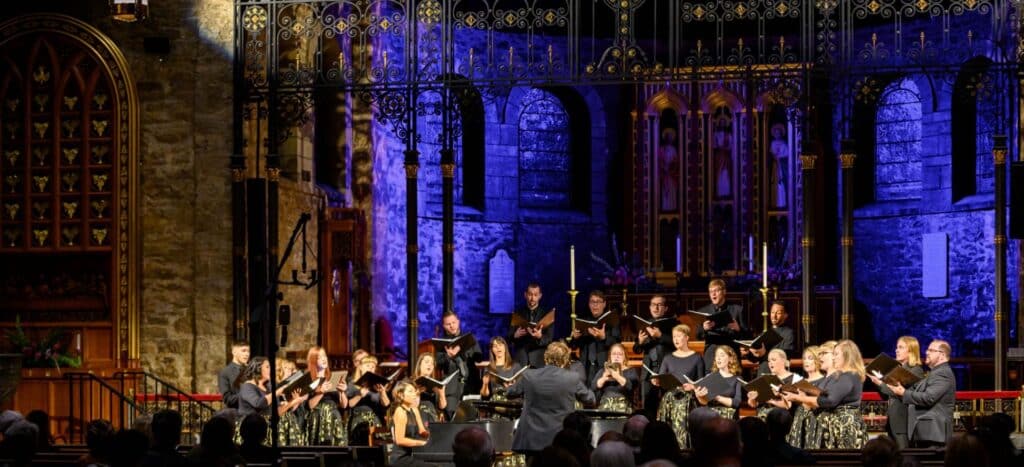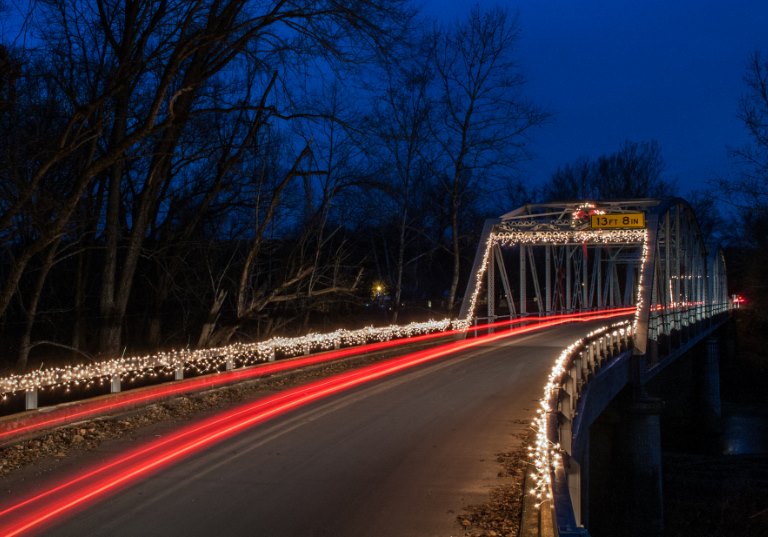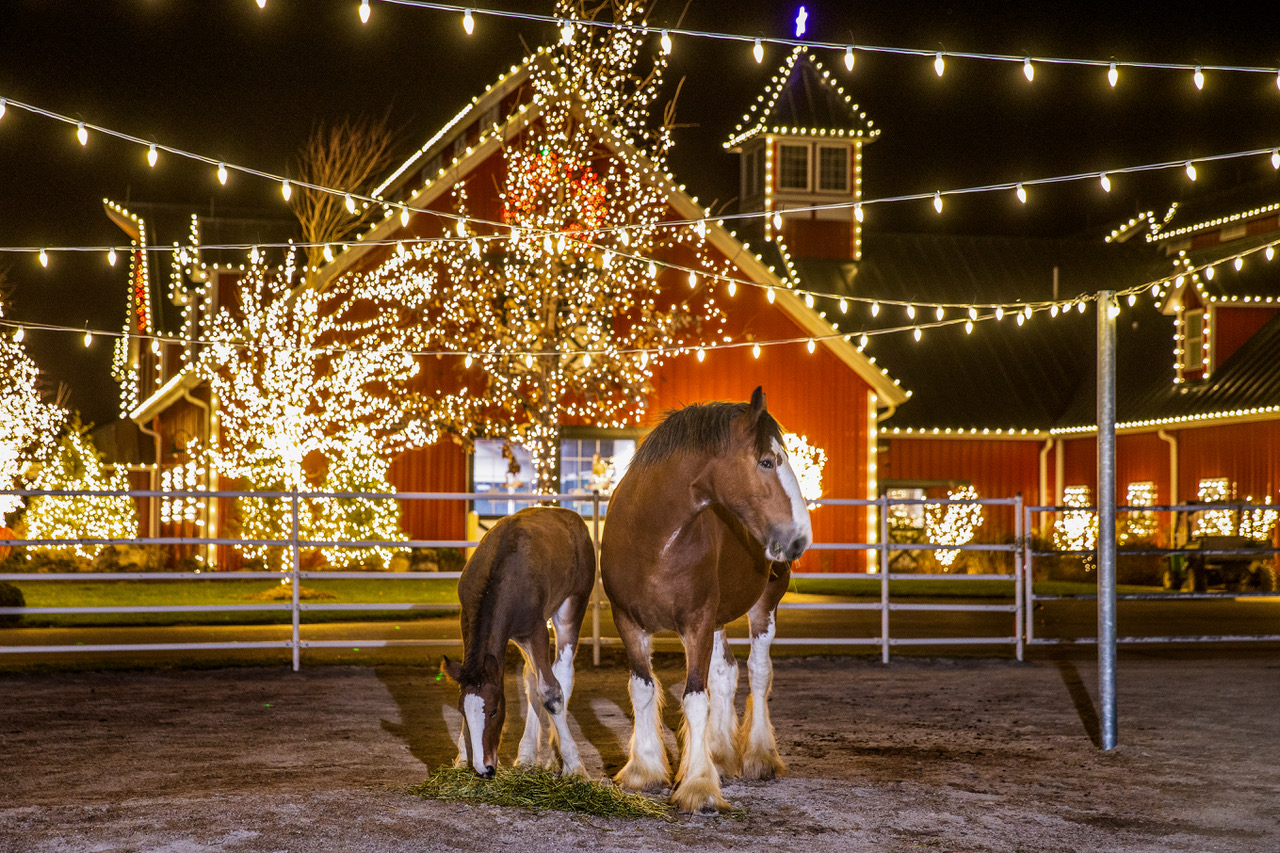This unique choral concert, O Magnum Mysterium, presents joyful and inspiring Christmas music featuring 15 composers spanning five centuries. The celebratory music introduces a new song, “Cold, Clear Voice of the Falling Snow.”

What better way to celebrate the reason for the season than listening to the sacred music of Te Deum in their world premiere of their O Magnum Mysterium in two locations in Kansas City?
Te Deum is a nonprofit developed to present high-quality choral concerts of sacred music. The name Te Deum is based on the phrase, Te Deum laudamus, Latin for “God, We Praise You.” The O Magnum Mysterium is a famous Christmas text:
“O great mystery and wonderful sacrament
That animal should see the newborn Lord lying in a manger!
Blessed is the virgin whose womb was worthy to bear the Lord, Jesus Christ.
Alleluia!”
Te Deum structures the concert in four sections exploring those four lines of text, the mystery of the gift of the Christ child, the animals present at the birth, the sacrifice and love of the mother, and “Alleluia,” a song of praise and joy. The music spans more than five centuries, and a new commission by the composer in residence James Eakin III presents “Cold, Clear Voice of the Falling Snow,” based on a newly commissioned poem by Charles Anthony Silvestri.
The concerts are across the state line at 7 pm on December 19, at Village Presbyterian Church, in Kansas City, Kansas, and again at 7 pm, on December 20 at St. Mary’s Episcopal Church in Kansas City, Missouri. You can buy tickets in advance for $20 (or $15 each for groups of five or more.) Tickets at the door will be $25. Students with IDs are free.
There will be complimentary receptions after both concerts, featuring Christmas punch and cookies in Kansas, and wine and a sweet in Missouri.
You can listen to Te Deum on Spotify or here.
Te Deum was founded in Kansas City as both singers and audiences in the area desired to present and hear choral concerts of the highest quality. They offer performances informed by historical repertoires from the 12th to the 17th centuries, but in addition, they perform modern music. They commission new compositions, and they have performed regionally, statewide, and nationally.
Related Posts
The Most Unique Christmas Lights in Missouri
Make a drive to this special bridge with Christmas lights one of your holiday traditions. It’s on Route 66 and framed by ancient bluffs that are natural wonders in Missouri.
See the Missouri Governor’s Mansion at Christmas
Take a free candlelight tour of the Governor’s Mansion, with the halls all decked out in sparkling lights and lush greenery, and meet and greet Missouri’s Governor Mike Parson and First Lady Teresa Parson, too.
The Clydesdales at Christmas
Experience the magic of warm, glowing Christmas lights and the gentle giant Budweiser Clydesdale draft horses during a tour for a unique holiday experience.



